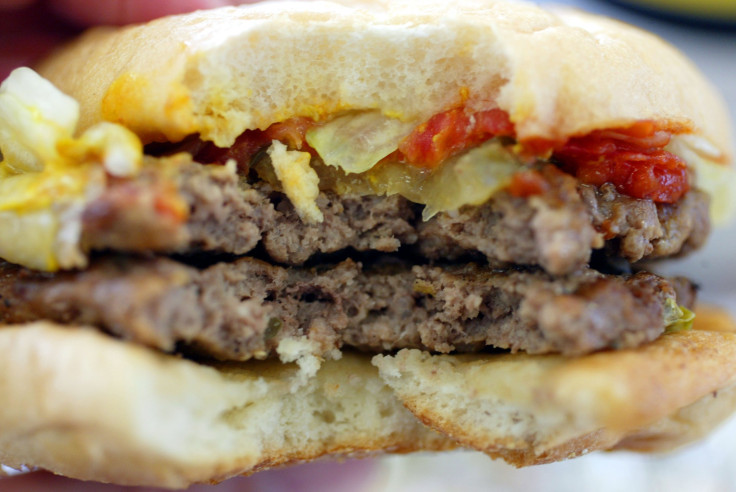Obese People May Want To Eat Healthy Food, But Their Brains Override Their Good Intentions

Far more than half of Americans are either overweight or obese, and though a majority of them report wanting to lose weight, two new studies find their brains may not have the strength to control their urge to eat unhealthy foods. Researchers from the University of Cambridge put overweight people to the test by first presenting them with images of healthier foods, and then surrounding them with a variety of food to see if they could override their impulses for choosing unhealthy food.
"These findings attest to the power of environments in overwhelming many people's desires and intentions to eat more healthily,” said the study’s co-author Theresa Marteau, the director of the Behavior and Health Research Unit at the University of Cambridge, in a statement. “The findings also reinforce the growing evidence that effective obesity policies are those that target food environments rather than education alone.”
Researchers recruited 23 lean, normal-weight participants and 40 who were overweight, and asked them to rate 50 common snack foods that appeared on a computer screen on a scale from 1 to 5 based on their healthiness and tastiness. Next, participants were placed in a functional magnetic resonance imaging scanner to measure their brain activity while they underwent a swapping exercise. They were shown foods again; the first was one of the foods they rated on the scale as neutral (3 rating), followed by a picture of another food item. After each pair, participants were asked if they’d like to swap their neutral item for the new one — like a granola bar for an apple.
Participants were then tested in real life. Researchers let them loose in an all-you-can-eat buffet, where they were asked to rate each food item on the same five-point scale for healthiness and tastiness before being allowed to eat as much food as they wanted. Researchers found that the brain scans could predict the amount of healthy food the participants ate. Specifically, participants whose brains lit up while swapping their food for a healthier option were more likely to eat that particular food in the buffet. However, overweight participants still tended to eat more unhealthy foods than their leaner counterparts even if they had chosen to swap for healthier options during the scans.
"There's a clear difference between hypothetical food choices that overweight people make and the food they actually eat," said the study’s co-author Dr. Nenad Medic, a psychology professor from the Department of Psychiatry at the University of Cambridge, in a statement. "Even though they know that some foods are less healthy than others, and say they wouldn't necessarily choose them, when they are faced with the foods, it's a different matter.”
Perhaps unsurprisingly, both lean and overweight individuals tended to choose foods that they rated as tastier over foods they rated as healthier. When researchers watched their brain activity, they saw that those who chose to swap one food for another activated the ventromedial prefrontal cortex, a region of the brain that’s been shown to assess the value of rewards.
In addition, researchers tested each participant's impulsivity with an online test to determine if it could influence their food selections inside and outside of the buffet. It turned out that those who were overweight were also at a greater risk of giving in to their impulses.
In a second study, researchers looked at the brain structures of individuals who fell into a variety of body mass index categories and found the ventromedial prefrontal cortex was thinner in those on the higher end of the scale — suggesting less strength in this brain region. With a compromised reward system and a higher tendency to give in to impulses, the two together suggest it might be more difficult for overweight people to see the long-term health rewards of eating healthier, which could be why they had less restraint at the buffet.
"This is an important insight for public health campaigns as it suggests that just trying to educate people about the healthiness of food choices is not enough,” Medic said. “The presence of unhealthy food options is likely to override people's decisions. In this respect, food choice does not appear to be a rational decision — it can become divorced from what the person knows and values."
Source: Medic N, Fletcher P, and Marteau T, et al. eNeuro. 2016.



























